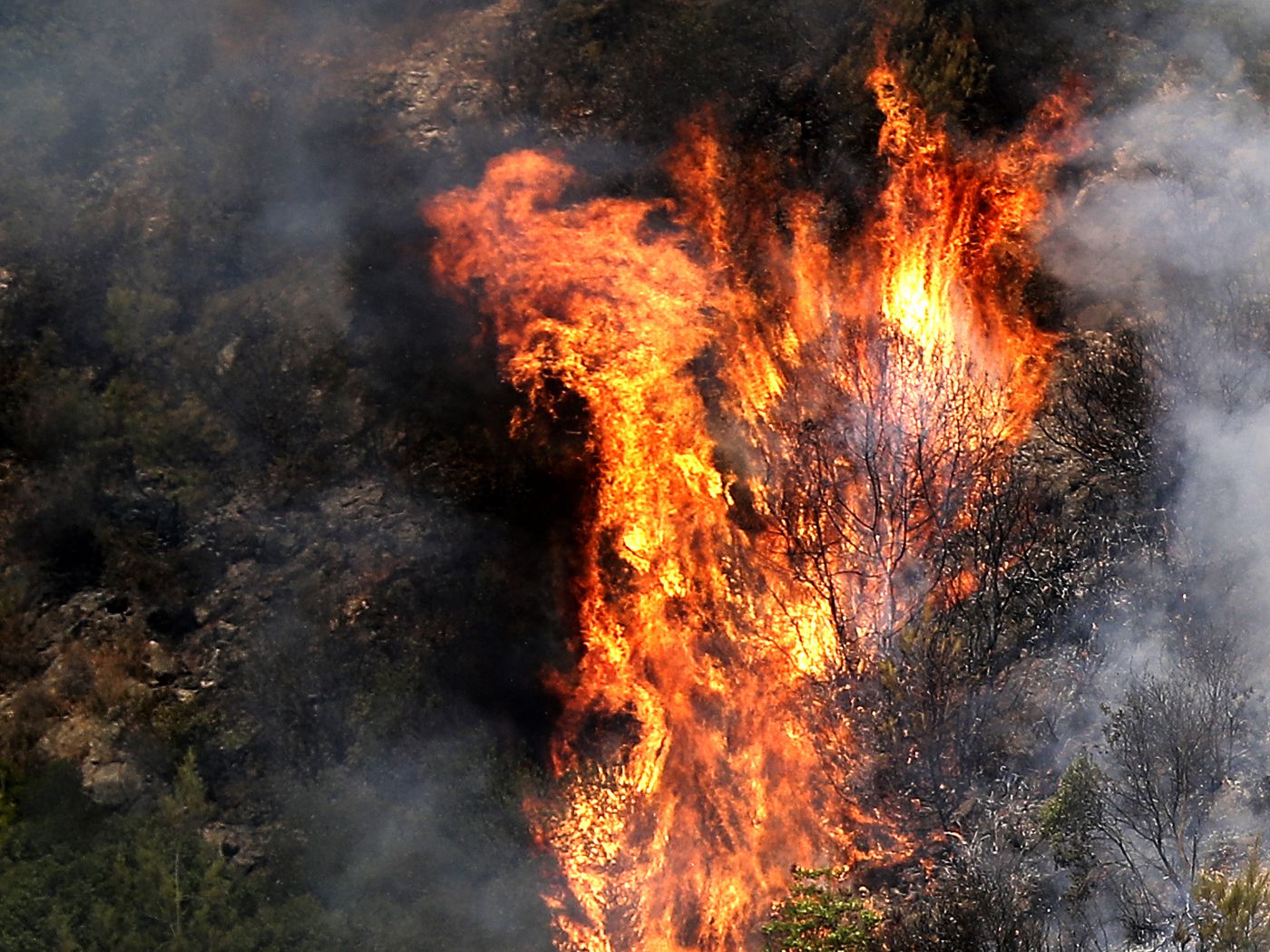The Mediterranean will be hit by extreme heat waves, drought and fires supercharged by the rising temperatures as per the new United Nations (UN) climate change report, which warns that the region is a “climate change hotspot.”
Over the past few weeks, several countries in the Mediterranean have experienced surreal wildfires, the most prominent of which have been in Greece and Turkey, that have overtaken whole villages and forced people out of their homes.
Air quality in these regions have “sharply dipped” according to Mark Parrington, senior scientist at the EU’s Copernicus Atmosphere Monitoring Service.
The UN climate panel said global warming is dangerously close to spiralling out of control, adding that humans are “unequivocally to blame” after decades of fossil fuel mining and greenhouse gas emissions.
The report estimates that the combined contribution of natural factors, such as the sun and volcanoes, to global warming is close to zero percent.
The Intergovernmental Panel on Climate Change (IPCC) said rapid action to cut greenhouse gas emissions could limit some of the impact.
If all emissions cease, heating will also stop and temperatures will stabilise in around two decades.
Other effects are mainly irreversible for centuries. Greenland’s land-ice is “virtually certain” to continue melting, therefore raising the sea level. The sea level in and of itself is expected to continue rising for hundreds of years to come as the oceans warm and expand.
Heat waves, hurricanes and other weather extremes will only become more severe as time goes on.
In July, Lebanon witnessed raging wildfires that burned swathes of pine forests in the northern Akar region.
UN Secretary-General Antonio Guterres described the report as a “code red for humanity,” adding that “the alarm bells are deafening.”
Climate change activist Greta Thunberg called on the public and media to pressure governments into acting.
The report added that unless immediate, rapid and large-scale action is taken to reduce emissions, global temperature is likely to reach or cross the 1.5-degree Celsius warming threshold within the coming 20 years.
Temperatures in the Mediterrenean are likely to rise faster than the global average in these coming years, threatening the region’s vital agriculture, fisheries and tourism sectors.
The intense heat may mean that in some places, people may die from merely stepping outside their homes.
Tens of millions more inhabitants “will face heightened risk of water shortages, coastal flooding, and exposure to potentially deadly extreme heat.”
Again, the most urgent demand is to lower greenhouse gas emissions before some regions “see rain-fed crop yields decrease by 64 percent.”
Around 71 percent of the MENA region’s GDP is exposed to high or very high water stress, alongside 61 percent of its population.
Yet even as societies give up fossil fuels entirely, temperatures will be pushed up again by “the loss of the airborne pollutants that come with them and currently reflect away some of the sun’s heat.”
In short, the world is running out of time to undo the long-term effects of climate change. Temperatures will continue to rise and possibly release more “climate-warming carbon emissions, such as the melting of Arctic permafrost or the dieback of global forests.”
Governments are encouraged to begin taking precautionary measures in case of climate disasters. The UN is even considering training people “to be able to deal with atypical environmental events like fires, floods and droughts.”


